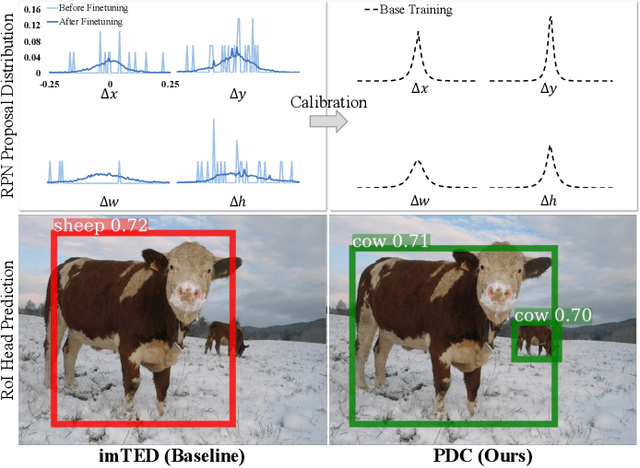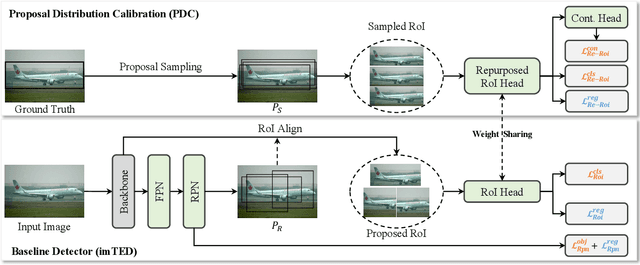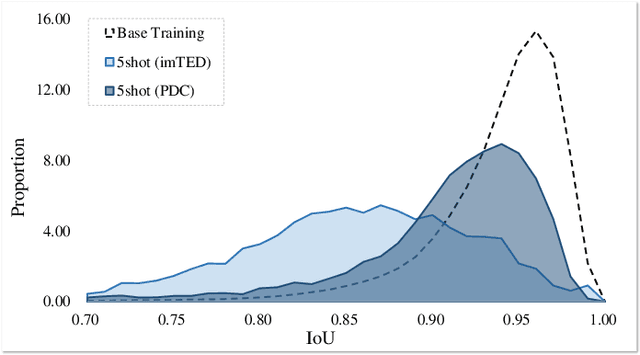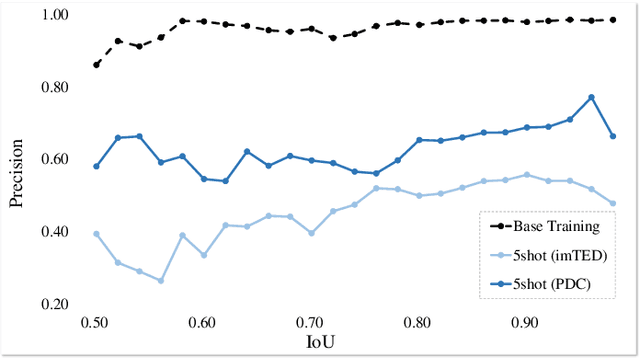Xiaozhong Chen
Proposal Distribution Calibration for Few-Shot Object Detection
Dec 15, 2022



Abstract:Adapting object detectors learned with sufficient supervision to novel classes under low data regimes is charming yet challenging. In few-shot object detection (FSOD), the two-step training paradigm is widely adopted to mitigate the severe sample imbalance, i.e., holistic pre-training on base classes, then partial fine-tuning in a balanced setting with all classes. Since unlabeled instances are suppressed as backgrounds in the base training phase, the learned RPN is prone to produce biased proposals for novel instances, resulting in dramatic performance degradation. Unfortunately, the extreme data scarcity aggravates the proposal distribution bias, hindering the RoI head from evolving toward novel classes. In this paper, we introduce a simple yet effective proposal distribution calibration (PDC) approach to neatly enhance the localization and classification abilities of the RoI head by recycling its localization ability endowed in base training and enriching high-quality positive samples for semantic fine-tuning. Specifically, we sample proposals based on the base proposal statistics to calibrate the distribution bias and impose additional localization and classification losses upon the sampled proposals for fast expanding the base detector to novel classes. Experiments on the commonly used Pascal VOC and MS COCO datasets with explicit state-of-the-art performances justify the efficacy of our PDC for FSOD. Code is available at github.com/Bohao-Lee/PDC.
 Add to Chrome
Add to Chrome Add to Firefox
Add to Firefox Add to Edge
Add to Edge